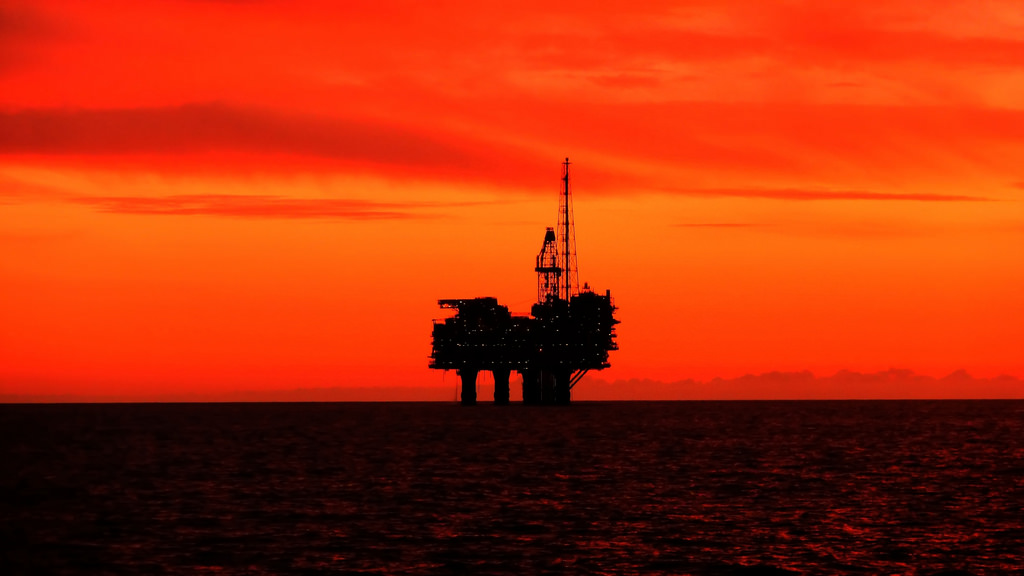Oil giant Royal Dutch Shell is under fire from environmental groups over its proposal to decommission the Brent oilfield in the North Sea. The plans submitted to the government relate to four concrete and steel platforms which have been in service for 40 years.
The environmental groups, which include WWF Scotland and Greenpeace UK, are refusing to back Shell’s plans. They claim the company has not made enough information public to properly cross-reference its proposals against the internationally agreed OSPAR rules that are supposed to govern decommissioning.
Shell is one of a number of oil producers looking at decommissioning now that many North Sea oil and gas fields are reaching the end of their productive lives. Decommissioning is a massive, expensive and technically challenging task; and Brent is seen as a test case for the rest of the UK industry.
While the UK government mulls Shell’s proposals, there are a number of myths surrounding the decommissioning process that people need to be aware of.
1. The oil company pays
Shell said in its Brent proposal: “Shell and Esso will be paying the decommissioning costs. The tax relief we will get back is not a subsidy or a new cost to the taxpayer – it’s a refund – i.e. the tax has already been paid by Shell and Esso in previous years.”
But by having tax rules that allow oil producers to reclaim taxes paid in previous years to cover the cost of decommissioning, the taxpayer does pay.
If decommissioning comes in at the approximate £50 billion estimate, the treasury (the taxpayer) will be down by around £25bn. If the costs are higher, the treasury will pay more – a huge risk to the taxpayer. As a result of this system, oil producers already reportedly became a net drain on the UK’s coffers for the first time in 2016, costing the taxpayer £396m.
2. There are environmental benefits
Many marine habitat experts are saying there is little environmental benefit from removal. Indeed some of the decommissioning activities are expected to do more environmental harm than good. This is due to seabed disruption, noise and the removal process itself, which is very energy intensive and will therefore be a major source of harmful emissions.
If the architecture is left in place, it will naturally reef and arguably create an environmental positive. The reefing concept has been used extensively in the Gulf of Mexico with the Rigs to Reefs programme.
In an area which lacks natural reefs, this has enhanced the marine habitat for many species of fish. Admittedly some people have raised concerns about environmental damage from deteriorating metal and reefing disrupting the natural ecology, but one can certainly argue the positives outweigh any negatives.
As I have argued before, leaving this offshore infrastructure in place and using the savings from taxpayers’ money to fund green energy projects would be much more sensible. Alternatively, you could invest the money in recovering the country’s manufacturing base, NHS funding, education, marine conservation, improving flood defences or tackling poverty.
3. We’ll see an onshore jobs bonanza
Numerous reports in the media have reflected claims like this. In reality, onshore activities are around 2%-3% of the overall decommissioning costs, and onshore jobs are only a fraction of that. The jobs are transient; once the task is complete, there is no follow-on activity.
If we chose the green energy option, it would provide many more sustainable jobs designing, fabricating and constructing the wind farms and other power sources; as well as continuous operations and maintenance jobs over their 30 to 40 year lifespans. The same could be said of many of my other suggested alternatives.
4. Decommissioning is good for the economy
How can a decommissioning industry that produces nothing and uses billions of taxpayers’ money be good for the economy? It is about taking things to bits. While it’s true you create short-term employment and that the employees and service companies will pay taxes, you don’t build any factories or provide new infrastructure to serve society and the economy. Also, much of the removal money will go to the heavy-lift companies – the UK has none.
The Oil and Gas Authority (OGA), an executive agency of the UK Department for Business, Energy and Industrial Strategy (BEIS) is also obliged to maximise the economic recovery of the country’s petroleum resources. How can the current plans for decommissioning be maximising economic recovery?
Support structure being dismantled at Tyneside, northeast England. Wikimedia
Again, to compare with my preferred option of leaving platforms in place and putting the money into green energy, this would clearly achieve more economic recovery. It would provide society and the economy with an essential commodity – power for industry, electric transport and heat for homes. The OGA has an objective of reducing decommissioning costs by around 35%, but the country can do far better – the authority should be lobbying Westminster accordingly.
5. UK must follow OSPAR
When I raised the question of maximising economic recovery with OGA and BEIS, I was told their role is to ensure OSPAR is followed and not to challenge it. OSPAR is the mechanism by which 15 governments of the western coasts and catchments of Europe, together with the EU, cooperate to protect the marine environment of the northeast Atlantic. It broadly requires full removal of oil platforms at the end of their economic lives.
As well intentioned as OSPAR is, the directives are taking the nation to a very poor outcome. We know so much more now than when the directives were agreed in 1998 – the consequences of global warming, for instance, hence the argument that green energy looks a better investment nowadays. Even OSPAR should be able to see green energy as having a much better outcome for the international community. Why is the UK not challenging the agreement?
 Tom Baxter does not work for, consult, own shares in or receive funding from any company or organisation that would benefit from this article, and has disclosed no relevant affiliations beyond the academic appointment above.
Tom Baxter does not work for, consult, own shares in or receive funding from any company or organisation that would benefit from this article, and has disclosed no relevant affiliations beyond the academic appointment above.



 Elon Musk’s Empire: SpaceX, Tesla, and xAI Merger Talks Spark Investor Debate
Elon Musk’s Empire: SpaceX, Tesla, and xAI Merger Talks Spark Investor Debate  Alphabet’s Massive AI Spending Surge Signals Confidence in Google’s Growth Engine
Alphabet’s Massive AI Spending Surge Signals Confidence in Google’s Growth Engine  FxWirePro- Major Crypto levels and bias summary
FxWirePro- Major Crypto levels and bias summary  American Airlines CEO to Meet Pilots Union Amid Storm Response and Financial Concerns
American Airlines CEO to Meet Pilots Union Amid Storm Response and Financial Concerns  Global PC Makers Eye Chinese Memory Chip Suppliers Amid Ongoing Supply Crunch
Global PC Makers Eye Chinese Memory Chip Suppliers Amid Ongoing Supply Crunch  Uber Ordered to Pay $8.5 Million in Bellwether Sexual Assault Lawsuit
Uber Ordered to Pay $8.5 Million in Bellwether Sexual Assault Lawsuit  Instagram Outage Disrupts Thousands of U.S. Users
Instagram Outage Disrupts Thousands of U.S. Users  BTC Flat at $89,300 Despite $1.02B ETF Exodus — Buy the Dip Toward $107K?
BTC Flat at $89,300 Despite $1.02B ETF Exodus — Buy the Dip Toward $107K?  Trump Backs Nexstar–Tegna Merger Amid Shifting U.S. Media Landscape
Trump Backs Nexstar–Tegna Merger Amid Shifting U.S. Media Landscape  OpenAI Expands Enterprise AI Strategy With Major Hiring Push Ahead of New Business Offering
OpenAI Expands Enterprise AI Strategy With Major Hiring Push Ahead of New Business Offering 


































